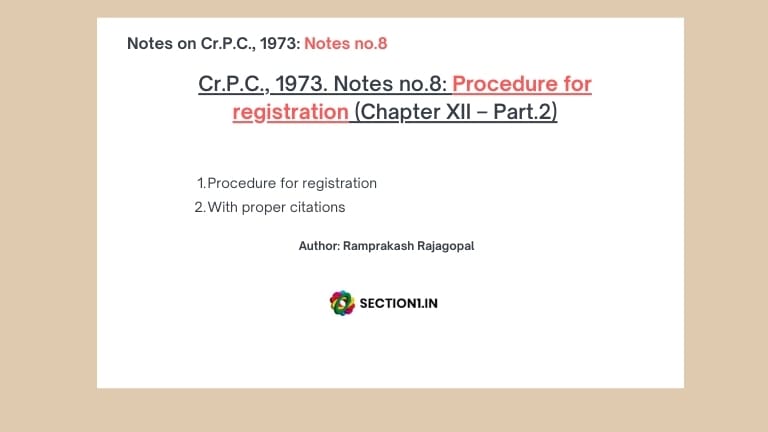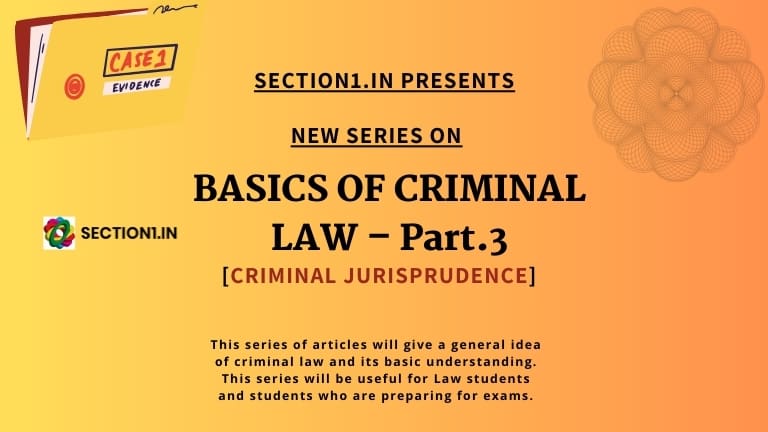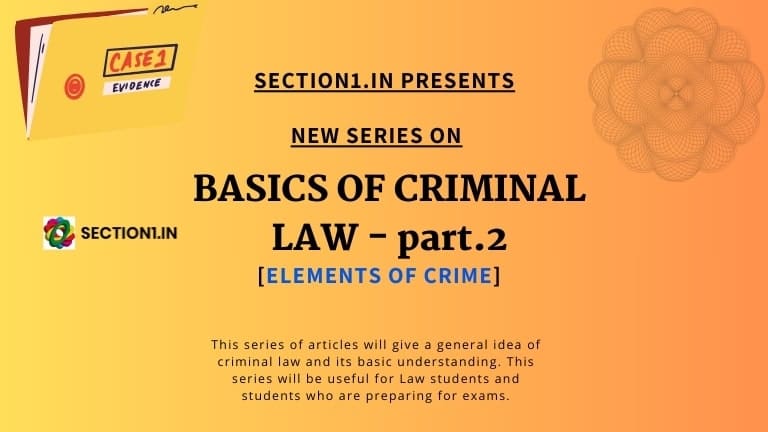Types of crime: A common knowledge
Introduction
Criminal law is a broad field that divides crimes into groups according to the type of offence, how serious it is, and how it affects society. It is essential for legal professionals, law enforcement, and the general public to comprehend the various forms of crimes. This article explores various crime types and their effects on the legal system, delving into the complex realm of criminal law.
1. Personal Crimes
Personal crimes entail causing bodily injury to someone or threatening to do so. These crimes consist of killing (murdering), kidnapping, assault, and battery. Both assault and battery include the deliberate infliction of physical damage or terror upon another individual. While homicide refers to the unlawful killing of another person and can be further divided into murder and manslaughter depending on the circumstances and purpose, kidnapping is the illegal seizing of someone against their will.
2. Property Crimes
Crimes committed against a person’s property are the main focus of property crimes. This includes theft, vandalism, arson, and burglary. A burglary is when someone breaks into a building with the intention of committing a crime, whereas theft is when someone takes something without permission. Vandalism is the deliberate destruction of another person’s property, whereas arson is the deliberate setting of fire to property.
3. Inchoate Crimes
Crimes that were started but not finished are known as inchoate crimes. These consist of solicitation, conspiracy, and attempted offences. Even if the act is not completely completed, there is still intent to commit a crime when it is attempted. A conspiracy is an agreement between two or more people to commit a criminal, whereas solicitation is the encouragement or request of another person to commit a crime.
4. White-Collar Crimes
White-collar crimes are non-violent crimes carried out for financial benefit by people, companies, or public officials. White-collar crimes include fraud, insider trading, embezzlement, and identity theft. These crimes, which can have serious financial ramifications for both persons and organisations, frequently entail deception, manipulation, or abuse of trust.
5. Statutory Crimes
Violations of particular laws or rules are considered statutory crimes, sometimes referred to as regulatory offences. These crimes, which include drug charges, moving infractions, and violations of environmental laws, are frequently non-violent. The applicable statutes or regulations usually specify the penalties for statutory offences.
6. Financial Crimes
Illegal financial transactions are at the centre of financial crimes. Financial crimes include things like tax evasion, bribery, and money laundering. Bribery is the act of providing, giving, getting, or soliciting something of value in exchange for influence; money laundering is the process of hiding the source of unlawfully obtained funds; and tax evasion is the unlawful act of failing to pay taxes that are due to the government.
7. Cybercrimes
As technology has advanced, cybercrimes have increased in frequency. Hacking, internet fraud, identity theft, and cyberstalking are some of these crimes. Due to its global scope and the difficulty in apprehending offenders—who frequently operate anonymously in virtual spaces—cybercrimes present particular difficulties.
Conclusion
The field of criminal law is dynamic and ever-changing, covering a broad spectrum of offences. To advance a just and fair society, legal experts, law enforcement, and the general public must have a thorough understanding of the various forms of crimes. As criminal activities continue to adapt to societal changes and technological advancements, the legal system must remain vigilant in addressing emerging challenges and ensuring the safety and well-being of communities.
Types of Crime: India Criminal Laws perspective (IPC)
India’s criminal law classifies many kinds of offences under the Indian Penal Code (IPC) 1860. The summary of these categories are as follows:
1. Understanding Criminal Offences
A criminal offence in India refers to any act or omission that is prohibited and punishable under the IPC or any other criminal law enacted by the Indian Parliament or the state legislature. Examples of criminal offences include murder, theft, rape, kidnapping, forgery, etc. The punishment for a criminal offence can range from a fine to imprisonment for a term or even the death penalty in some cases.
2. Classification of Criminal Offences
The CrPC 1973 classifies criminal offences into certain categories such as cognizable, non-cognizable, bailable, and non-bailable offences. Different offences have different procedural treatments under Indian law.
3. Major Categories of Crimes
The IPC 1860 classifies various offences into seven broad categories:
1) Offences Against the Human Body: This category includes crimes that cause harm or injury to the human body, such as murder, attempt to murder, culpable homicide, dowry death, kidnapping and abduction.
2) Offences Against Property: This category includes crimes committed against any property, whether movable or immovable. Examples include dacoity, preparation for dacoity, robbery, preparation for robbery, extortion, theft, mischief, housebreaking, etc.
3) Offences Relating to Public Tranquillity: Crimes that disturb the peace of society fall under this category. Examples include unlawful assembly, rioting, affray, etc.
4) Offences Relating to Document: This category includes crimes related to documents and property marks, such as forgery, falsification of accounts, using forged documents or property marks, counterfeiting currency notes or banknotes, etc.
5) Offences Against Women and Children: The IPC deals with various offences against women and children, including grievous hurt by acid attack, attacking modesty of women, rape, voyeurism, stalking, causing the death of a quick unborn child, abandoning a child, kidnapping, maiming, etc.
6) Offences Against State and Terrorism: This category includes crimes that pose a threat to the state and public safety.
7) Offences Relating to Elections: This category includes crimes that affect the conduct and fairness of elections.
In conclusion, the Indian criminal law system has a comprehensive classification of crimes, each with its own procedural treatments and punishments. This classification helps in maintaining law and order and ensuring justice in society.







1 Comment
[…] Basic understanding: A common knowledge in types of crimes and in perspective of Indian criminal law… […]